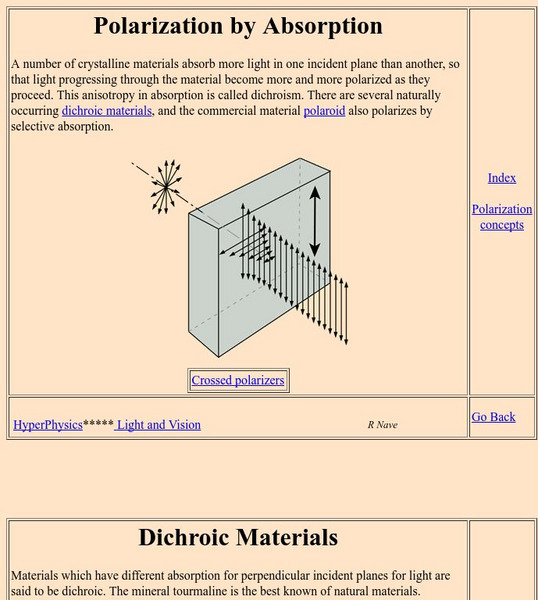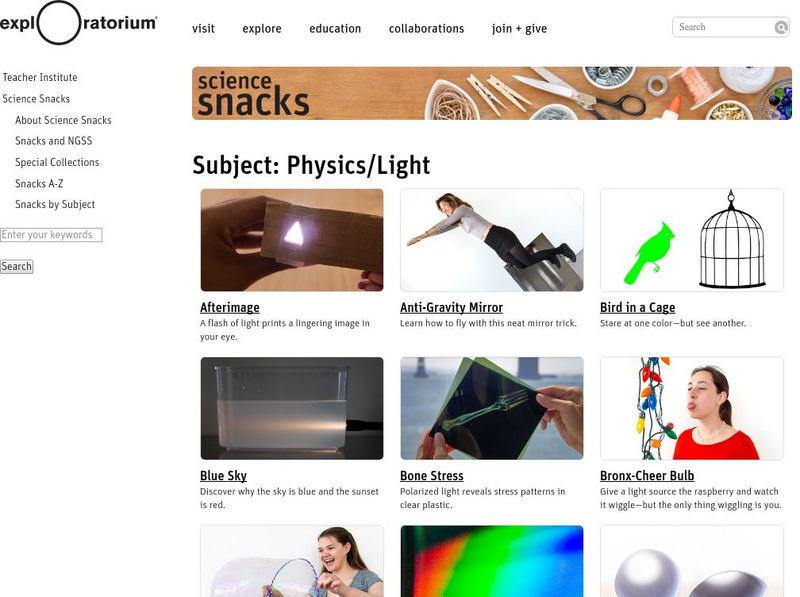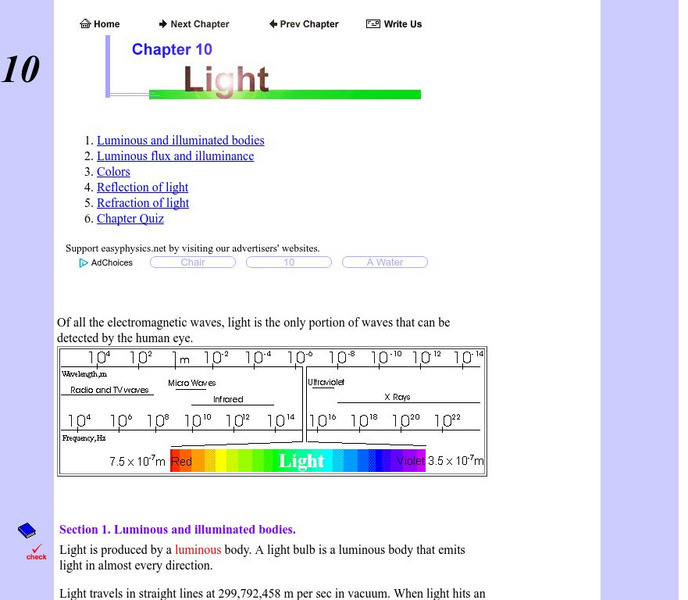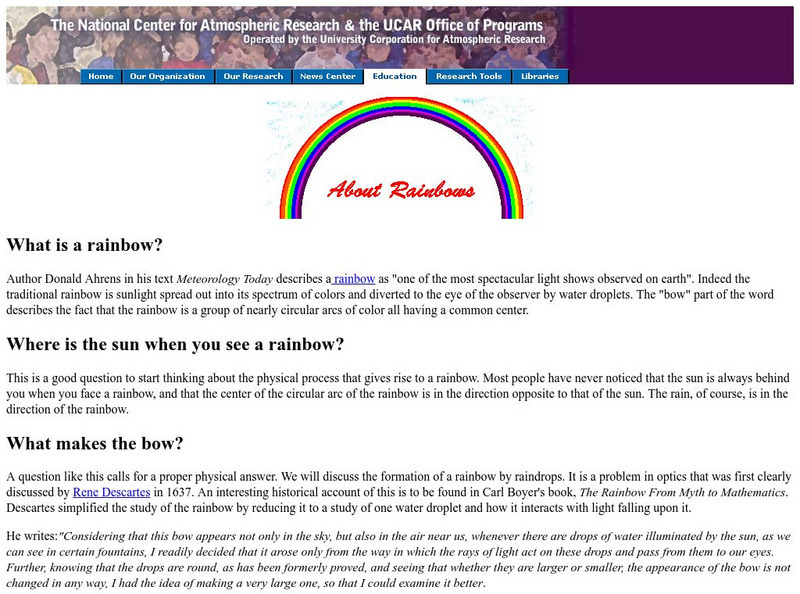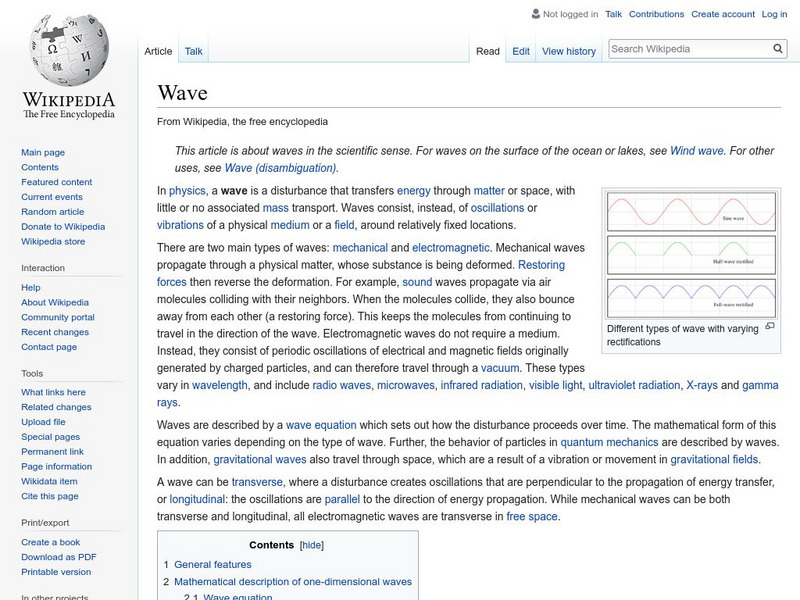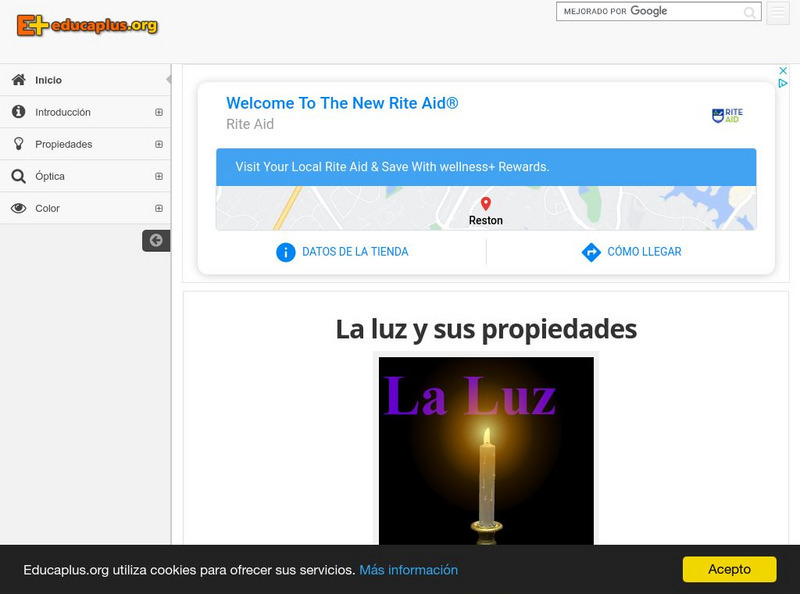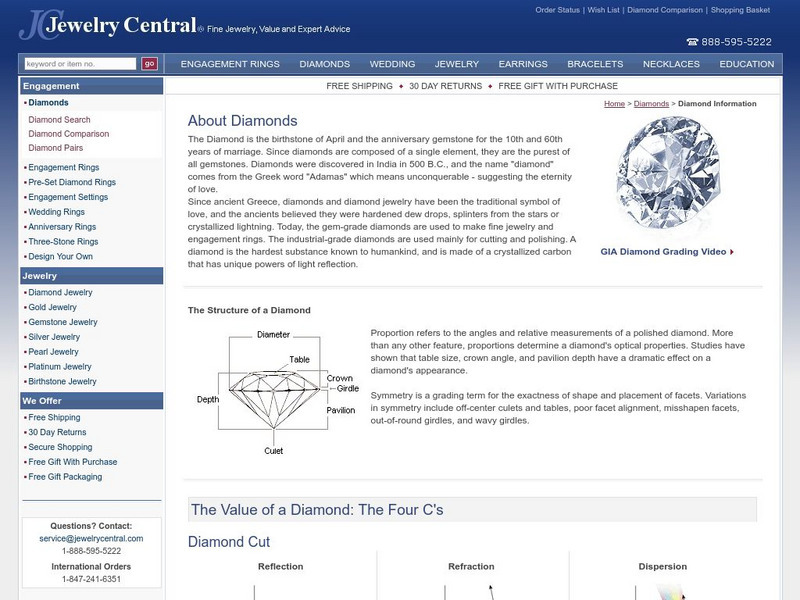Other
United States Master Swimming: Fiber Aquatics
The principle of total internal reflection is discussed in this article. The appearance of objects from inside the water of a swimming pool is compared to the path of light in a fiber optic cable.
Space Telescope Science Institute
Amazing Space: Telescopes From the Ground Up
Students can investigate the historical development of six different telescopes. The technical aspects of different telescopes are also presented.
TeachEngineering
Teach Engineering: When Silicon Talks
In this activity, students tackle this aspect of engineering as they solve problems for precise angles and speeds, and predict data output when samples are altered.
Georgia State University
Georgia State University: Hyper Physics: Crossed Polarizers
At this univeristy physics department site, the polarization of light is explained and illustrated. Methods for analyzing light to determine the degree of polarization are stated and explained with equations.
Georgia State University
Georgia State University: Hyper Physics: Polarization by Absorption
The operation of Polaroid filters on a pair of sunglasses is shown.
Optical Society
Optical Society of America: Optics for Kids: Lenses and Geometrical Optics
Article explaining what lenses are and how they work. At the end of the article, there are links to several hands-on activities for investigating lenses.
Exploratorium
Exploratorium: Science Snacks: Physics/light
Here is a large collection of simple science class activities for understanding the physics of light.
TeachEngineering
Teach Engineering: Waves and Wave Properties
Students learn about the types of waves and how they change direction, as well as basic wave properties such as wavelength, frequency, amplitude and speed. During the presentation of lecture information on wave characteristics and...
Physics Classroom
The Physics Classroom: Light Waves and Color
The behavior of light waves is introduced and discussed. Also, polarization, color, diffraction, and interference are introduced and discussed thoroughly as supporting evidence of the wave nature of light.
Physics Classroom
The Physics Classroom: The Nature of a Wave
A very good introduction to the world of waves. Waves and wavelike motion, what is a wave, and categories of waves are the topics examined in this site. Many links to other wave sites.
BBC
Bbc: Gcse Bitesize: General Properties of Waves
Light travels as waves. Waves can be described by their amplitude, wavelength and frequency. The speed of a wave can be calculated from its frequency and wavelength.
American Museum of Natural History
American Museum of Natural History: See the Light
Take a look at light with these three easy experiments
Other
Easyphysics: Chapter 10 Light Waves
Learners investigate light waves. Some topics examined are reflection of light, illuminance, and refraction of light. The resource includes example problems with solutions and a chapter quiz.
CK-12 Foundation
Ck 12: Physics: Geometric Optics Study Guide
Learn and understand geometric optics with this review resource.
Physics Classroom
The Physics Classroom: Image Formation for Concave Mirrors Case A
This animation depicts the path of light to each person's eye. Different people are sighting in different directions; yet each person is sighting at the same image location. In this animation the image location is the intersection point...
Ducksters
Ducksters: Physics for Kids: Behavior of Light as a Wave
Kids learn about the behavior of light as a wave in the science of physics including reflection, refraction, and diffraction.
University Corporation for Atmospheric Research
Ucar: About Rainbows
This site from the University Corporation of Atmospheric Research provides an illustrated article about the phenomenon of rainbows.
My Science Site
Optics: Energy and Control [Pdf]
A very comprehensive unit including topics such as light and its source, visible sources of light, transparency of objects and much more. Also offers a resource list, blackline masters, and expectation list, expectation summary and a...
BBC
Bbc: Gcse Bitesize: Why Do Scientists Think That Light and Sound Are Waves?
Light travels as transverse waves and can travel through a vacuum. Sound travels as longitudinal waves and needs to travel through a solid, liquid or gas. Read about the properties of light and of sound, and learn the differences between...
Cosmo Learning
Cosmo Learning: Applied Science and Technology 210: Electrical Engineering
A collection of video lectures from a course that explores the application of electrical engineering topics. Webpage includes twenty-eight lectures from a professor at the University of California, Berkeley. Lectures vary in length and...
Wikimedia
Wikipedia: Wave
An in-depth encyclopedia article from Wikipedia on waves gives a definition for what a wave is. Other content in the article includes a list of examples and characteristics of waves, information about the difference between transverse...
Other
Open School Bc: Sound and Light
The Sound and Light interactive investigates these two forms of energy. Students will enjoy exploring how sound and light are created, travel, and can be controlled.
Educaplus (Jesús Peñas Cano)
Educaplus: La Luz
What do you know about light? Learn about it through this interactive site. At the end you can take a test to test your knowledge. A scientific calculator is also provided.
Jewelry Central
Jewelry Central: Diamond
Discusses in detail the grading of diamonds, as well as briefly discussing their structure, physical properties, and historical background. Accompanied by clear illustrations.
Other popular searches
- Light Reflection Refraction
- Refraction and Reflection
- Wave Reflection Refraction
- Reflection Refraction Lab
- Refraction Reflection
- Light Reflection, Refraction




